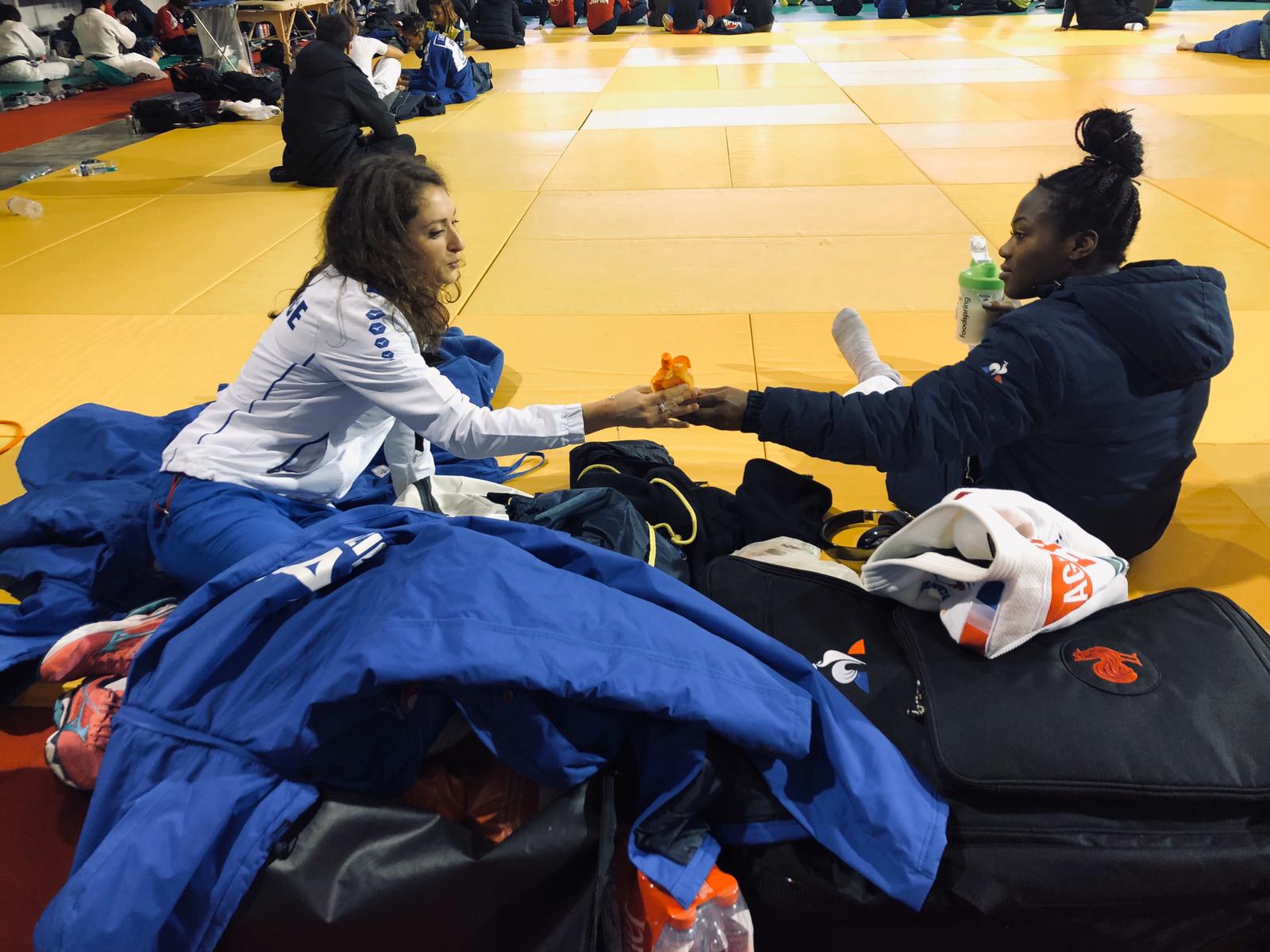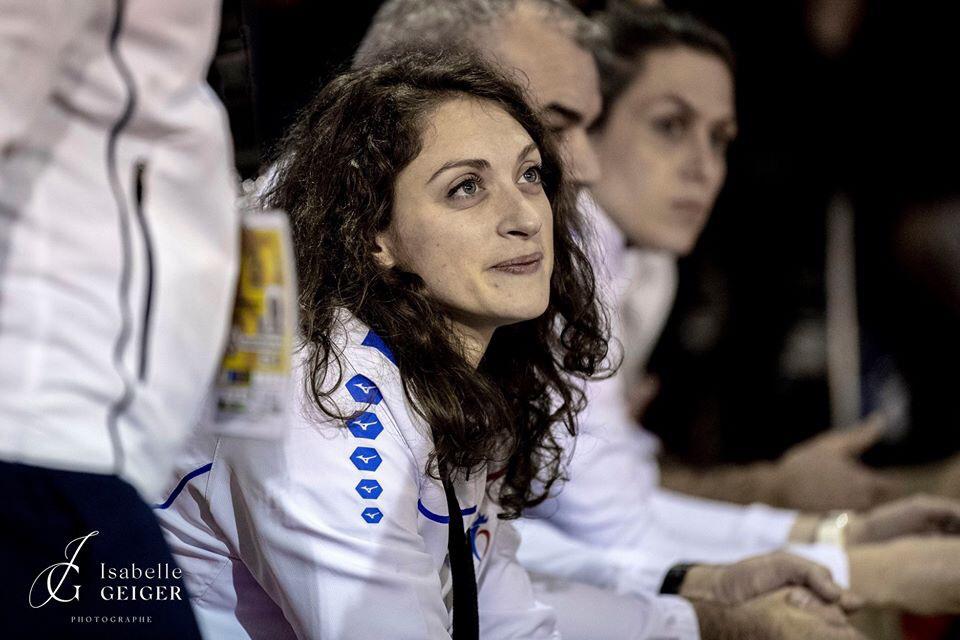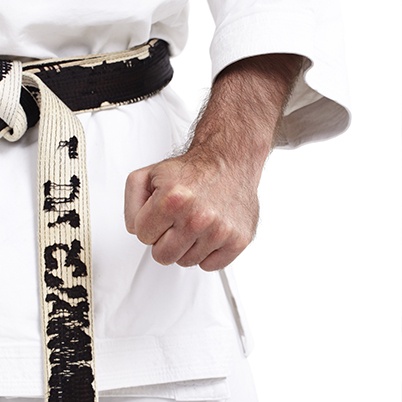Exercising is good, but controlling your diet during this containment period is better ! How to compensate the lack of physical activities ? How to best boost your immune system ? Frozen or tinned food ? Red or white meat ? How much ?... Nutritionist of the French Judo and Sailing national teams and the Cofidis cycling team, Laurie-Anne Marquet gives us very practical advices (a typical safe day, to avoid/favor) and answers 15 daily questions.
By Ludovic Mauchien / Photos : DR / Isabelle Geiger
She is the nutritionist for the French Judo and sailing national teams. She works with the professional cycling team Cofidis and several champions. Research engineer at the University of Aix-Marseille, after a thesis in sports nutrition at Insep, Laurie-Anne Marquet gives us her advices on how to best manage our food and our body during this period of containment.
HER ADVICES
To favour in order to avoid deficiencies
The best solution is to have a diversified nutrition. It is necessary to bring a variety in the sources of meat, fish, starchy foods, fruits and vegetables. Thus, one is sure not to miss anything. To strengthen your immune system, favor food sources of iron (red meat, red beans), zinc (oysters, wheat germ, cashews), vitamin C (citrus, kiwi, peppers, cabbage), probiotics (kefir, supplements ), vitamin D (sun exposure).
Eat less to compensate for lack of exercise ?
Yes, energy intake must balance with energy expenditure : we spend less, we eat less. Otherwise, the energy balance is positive and there is weight gain.
How to balance meals ?
The proportion of starchy foods should be reduced in favor of vegetables, which are low in calories. They are rich in vitamins, minerals and fibers so they will help strengthen the immune system and promote satiety.
Eating small and low-calorie meals ?
You should keep a regular rhythm with regular meals throughout the day, rather than snacking. They must be low in calories because they are adapted to the expenditure of the day. Meals on a day of rest will consist mainly of vegetables and pulses. A day with physical preparation sessions will include starchy foods (1/3 of a plate) with meals.
To drink a lot of water ?
Hydration should be normal : 1.5 to 2 l/day excluding training. A simple way to tell if you are well hydrated is to check the color of your urine. It should be as clear as possible. Drink regularly throughout the day, during and out meals (water, tea, herbal tea, milk).
Avoiding alcohol ?
Alcohol is a very caloric nutrient (7kcal/g). In addition to promoting dehydration, alcohol consumption will promote weight gain. To limit even more than usual.
Any specificities for confirmed athletes ?
Their energy expenditure is significantly reduced compared to their pace of life before the containment. They have to adapt to this new expense. For us, sedentary, the pace is lower. In addition, the decrease in muscle load can induce a loss of muscle mass, which must be tried to limit as much as possible, while maintaining a high protein intake (20-30g of protein every 3-4 hours).
TO AVOID / TO FAVOUR
To avoid
Foods with high energy density should be avoided. These are often foods rich in added fats and sugars such as cookies, chocolate bars, crisps, sugary drinks... They are very high in calories and not very interesting from a nutritional point of view. Often these foods are present during snacking, which should be tried to limit as much as possible. You have to differentiate hunger from gluttony. Choose a healthy snack : 1 yogurt, 1 fruit, 1 handful of oilseeds. You can please yourself but in a reasonable way : 1 pleasure meal/week, 2 pleasure snacks.
To favour
Favor low-calorie foods : vegetables (fresh, frozen or tinned but not cooked). Quality must be given priority over quantity. For starchy sources, choose full starchy foods : richer in fiber, vitamins and minerals. You can also replace them with pulses (lentils, chickpeas, red beans), lower in carbohydrates and higher in fiber. Favor fresh, minimally processed foods. Maintain a protein intake : egg, meat, fish by including them at breakfast (omelette, ham, chicken, fromage blanc).
15 DAILY QUESTIONS
Eat well at breakfast ?
Complete meal which contains carbohydrates and proteins
Tea or coffee ?
Whatever
With or without milk ?
According to everyone's taste
Nutella or applesauce ?
Homemade applesauce
Bread or rusk ?
Wholemeal bread/cereals/ rye flour/spelled... Rusk is a processed product.
Wholemeal or white bread ?
Same. White bread is a food with a fast glycemic index.
Oil or butter ?
Rather vegetable oil : olive for cooking. Rapeseed/nuts for seasonings
Frozen or tinned food ?
Frozen or even fresh
Red meat or white meat ?
2 red meats/week (iron is needed) and, the rest of the time, white meat
Grilled or pan-fried meat ?
Rather grilled, because less fat is added
Cooked meat (boiled meat) or grilled meat ?
Avoid ready-made cooked meals often poor in protein, but rich in poor quality fats and salt. Home cooked dishes, yes but without abusing of the fresh cream ! They are generally higher in calories than grilled meat or fish in foil. But it's often good so it can integrate the meals of the week.
Wine or water ?
Water. Wine with moderation
Pasta with or without sauce ?
Without sauce but with a pan of vegetables or a homemade tomato sauce
Starchy or tinned vegetables ?
Both !
Cheese or charcuterie ?
With moderation. Twice a week
Cakes or yogurts ?
Yogurt. But now is the time to try a homemade cake by replacing the butter with almond puree !
A TYPICAL SAFE DAY
Breakfast
1 drink (tea/coffee/milk/water)
1 fresh fruit
1 dairy product (milk, cottage cheese, yogurt)
1 source of cereal (oatmeal, wholemeal/cereal bread)
A bowl of fromage blanc, with fresh cut fruit or frozen red fruit, oatmeal, a little honey and nuts/almonds will do it.
Lunch
1 portion of meat/fish (100-120 gr)
1/3 plate of whole starchy foods (rice, pasta, quinoa, potato)
1/3 plate of vegetables (cooked or raw, soup)
1 fresh fruit
4 PM snack
1 yogurt
1 fruit
1 handful of oilseeds
Or a smoothie (milk/Greek yogurt) + fresh fruit
Dinner
1 portion of meat/fish (100-120 gr)
1/3 plate of legumes
1/3 plate of vegetables
1 yogurt

Laurie-Anne Marquet with Clarisse Agbegnenou, 4-times Judo World champion.






